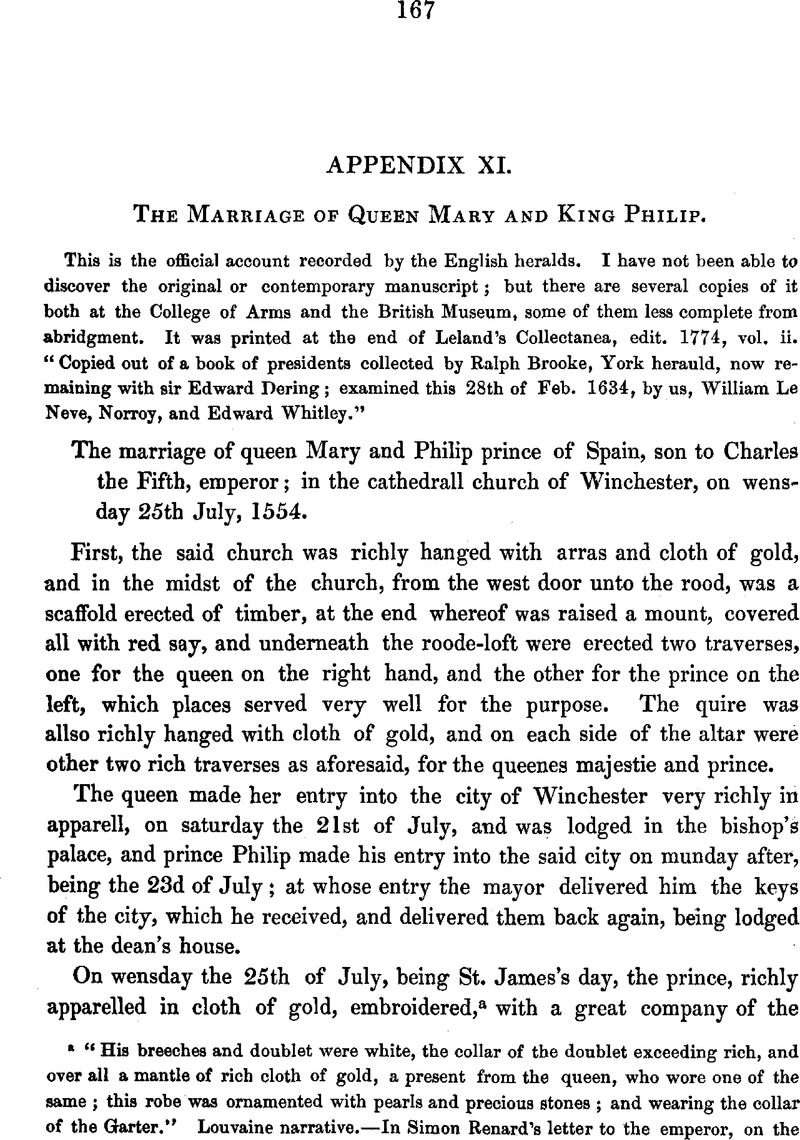No CrossRef data available.
Article contents
XI. The Marriage of Queen Mary and King Philip
Published online by Cambridge University Press: 23 February 2010
Abstract

- Type
- Appendix
- Information
- Copyright
- Copyright © Royal Historical Society 1850
References
page 167 note a “His breeches and doublet were white, the collar of the doublet exceeding rich, and over all a mantle of rich cloth of gold, a present from the queen, who wore one of the same; this robe was ornamented with pearls and precious stones; and wearing the collar of the Garter.” Louvaine narrative.—In Simon Renard's letter to the emperor, on the 14th June, he reported, that “The quene has had a collar (of the Garter) made, which cost seven or eight thousand crowna, besides several rich dresses for his highness; but, except this, I see no great preparation by the nobility, or by the people, for his reception.” Tytler, ii. 416.
page 167 note a i. e. the lady marquess, or marchioness.
page 167 note b This should be lord chancellor: see before, p. 141.
page 169 note a The lord chancellor.
page 169 note b This was the lady Margaret Clifford, the queen‘s only female relative that was now with her. Miss Strickland (who quite misinterprets the present passage, in her Lives of the Queens, vol. v. p. 380,) supposes the purse-bearer to have been the lady Margaret Douglas; but that lady was now countess of Lennox. See the dates before given in p. 84.
page 170 note a MS. Harl. 425, f. 97.
page 170 note b i. e. the gentlemen pensioners.
page 170 note c “At the banquet, the earl of Arundel presented the ewer, the marquess of Winchester the napkin; none being seated except the king and queen: but, as to the rest of the entertainment, it was more after the English than the Spanish fashion. The dinner lasted till six in the evening, after which there was store of music; and before nine all had already retired.” Narrative from the archives of Louvaine, in Tytler, ii. 432.
page 171 note a The evening before his landing Philip sent the prince of Gonzaga [misprinted Gavze in Tytler] and count d'Egmont, to the queen then at Winchester, to inform her of his arrival and good health. Narrative on record at Louvalne.
page 171 note b The list at Louvaine says, the bishop of Cuença. Tytler, ii. 433.




